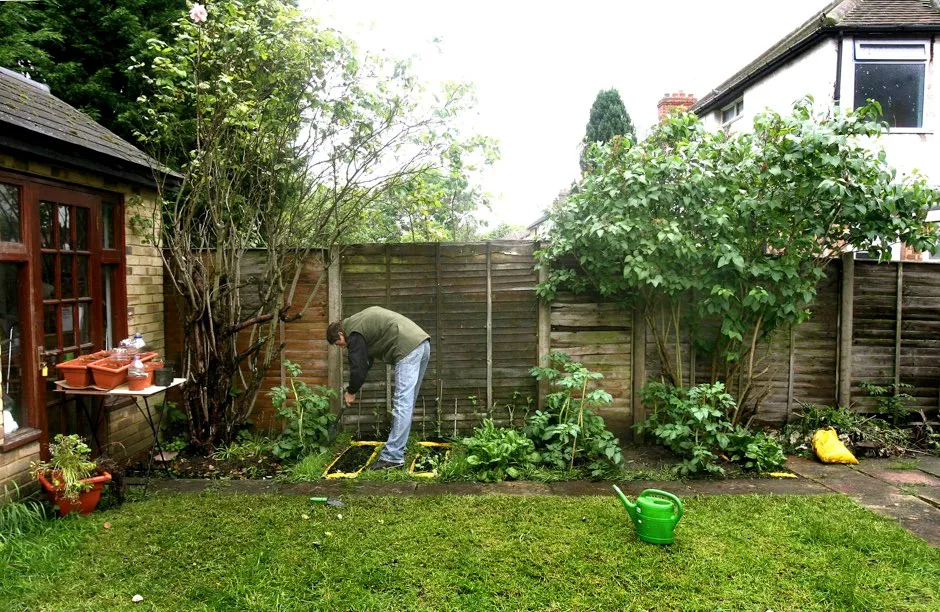1
Beat the ‘terrible twos’ by being flexible
Fear not new mums and dads, the dreaded ‘terrible twos’ are not an inevitability that must be endured by all parents. A study of children under the age of two carried out by researchers at the University of Cambridge has found that flexibility is the key to minimising toddlers’ behavioural problems.
This method of parenting, known as 'autonomy support', places emphasis on the child taking the lead. As the child engages in tasks, parents should watch and adjust how they respond according to how the child is managing, the researchers say. Though they acknowledge that this is not necessarily easy.

“It's not about doing everything for your child, or directing their actions. It's more of a to-and-fro between parent and child," said first author Prof Claire Hughes, Deputy Director of the Centre for Family Research at the University of Cambridge.
"Parents who do best at this can sit back and watch when they see their child succeeding with something, but increase support or adapt the task when they see the child struggling.”
Read more about children:
- The mystery of language: how children learn to speak their mother tongue
- Children can understand counting “years earlier than previously believed”
- Thumb-sucking and nail-biting children show fewer allergies
The team monitored more than 400 new parents from the East of England, New York State and the Netherlands for two years. They found the 14-month-old children of couples employing the autonomy support style of parenting had reduced behavioural problems ten months later.
But only for children who had been rated as 'easy babies'- those in a generally happy mood, who adapted easily to new experiences and quickly established routines.
“If you're blessed with a happy baby, then you can get them through the 'terrible twos' without things getting too bad or lasting too long, by being flexible about the way you play with your child between the age of 14 and 24 months.
"A puzzle game, for example, can turn into quite a different game if you allow your child to take the lead,” said Hughes.
2
Spending time in the garden good for health and wellbeing, study suggests
Spending time in the garden may be beneficial for overall health and psychological well-being, according to a new study.
These benefits apply to people who are gardening or even simply relaxing, researchers say.
The findings are based on an analysis of data gathered from more than 7,000 people as part of a survey by Natural England.
The research, published in Elsevier’s Landscape and Urban Planning journal, found that people who spend time in the garden are far more likely to report general good health, higher psychological well-being and greater physical activity levels than those who do not spend time in the garden.

Dr Sian de Bell, of the University of Exeter Medical School and lead author on the study, said: “Our findings suggest that, whilst being able to access an outdoor space such as a garden or yard is important, using that space is what really leads to benefits for health and well-being.”
She said their study is one of the largest to date to analyse the health benefits of gardens and gardening specifically.
The researchers looked at data collected between 2009 and 2016 from 7,814 people from the Monitor of Engagement with the Natural Environment (MENE) survey, which gathers data on people’s weekly contact with the natural world.
They found that, compared with no garden access, access to a private garden was associated with higher psychological well-being.
They also found that people with access to a private outdoor space such as a balcony, yard or patio were more likely to meet physical activity guidelines.
Read more about gardening:
- Two amazingly easy indoor food experiments to try out with the kids
- Why don’t plants get sunburn?
- A scientist’s guide to life: 8 tips for growing indoor plants
The authors wrote in the paper: “These findings indicate that domestic gardens are a potential health resource and are not necessarily substituted for by other natural environments, highlighting the importance of their provision alongside green space in urban policy and planning.”
In addition, the team found that people who regularly spend time in their garden were also more likely to visit nature elsewhere once a week.
Professor Alistair Griffiths, director of science and collections at the Royal Horticultural Society and co-author on the paper, said: “This work adds to the increasing body of scientific evidence on the health benefits of gardens and gardening.
“As the current COVID crisis has demonstrated, there’s an urgent need to include the provision of private gardens in the planning process to better support the UK’s preventative health agenda and the well-being of our nation.”
3
Could otters who juggle rocks be hungry and excited to eat?
Zoo otters juggle stones when they are hungry because they may be excited about food, scientists believe.
The mammals can often be seen playfully tossing rocks in the air while standing or lying on their backs.
Scientists from the University of Exeter who conducted the study believe this behaviour might help juvenile otters practise the foraging skills they need to extract foods from complex prey such as mussels and clams.
In older otters, experts suggest the act of juggling rocks could be a way to pass the time and keep their brains active, similar to how humans do puzzles to keep their minds engaged.
But Mari-Lisa Allison, of the University of Exeter and lead author of the study, said that while hunger may be a key driver of rock juggling in otters, the ultimate function of the behaviour is still a mystery.
She told the PA news agency: “Our strongest finding is that otters juggled more frequently before being fed, indicating that the immediate driver of the behaviour is hunger.
“More research is needed to investigate the ultimate function of the behaviour.”

The researchers studied 44 Asian small-clawed otters (Aonyx cinereus) and six smooth-coated otters (Lutrogale perspicillata) in captive environments.
While the species are closely related, Asian small-clawed otters forage on crabs and shellfish while smooth-coated otters hunt for fish.
The team used three different types of man-made food puzzles to analyse the animals’ foraging behaviour: tennis balls with holes to allow the otters to reach inside for food, plastic medicine bottles with the lid loosely screwed on, and two stacked Duplo bricks with the meat placed inside.
Ms Allison said the puzzles were designed to mimic foraging behaviour, like for example, snapping apart the bricks requires the otters to have skills that would allow them to break into mussels and clams to get their food.
The team found the creatures juggled more when hungry, and that both juvenile and senior otters juggled more than adults with offspring.
Read more about animal behaviour:
- Lemurs create a fruity fragrance to attract mates
- Flamingos make long-lasting friendships, same-sex bonds and ‘married’ couplings
- Male dolphins match their calls and movements when working together
Ms Allison said: “We hypothesised that juveniles may rock juggle to develop those food extracting skills.
“When they reach maturity and begin reproducing, their time and energy is devoted to raising their offspring. As such, they may not have the time or energy to play.”
She added: “In senior otters, they no longer have those parental responsibilities so may have more time to rock juggle.
“In a similar way to how humans stave off Alzheimer’s by reading and doing puzzles, we hypothesised that the senior otters may be performing the behaviour to engage their brains to prevent cognitive decline.”
The study is published in Royal Society Open Science.
Read previous weeks' feel-good Friday news:
